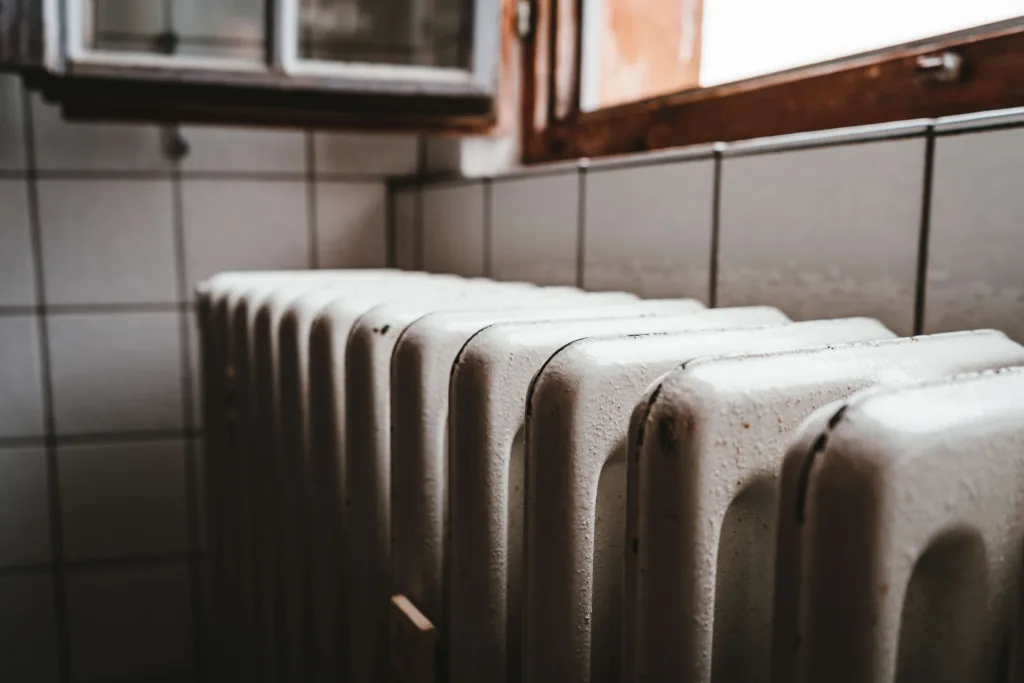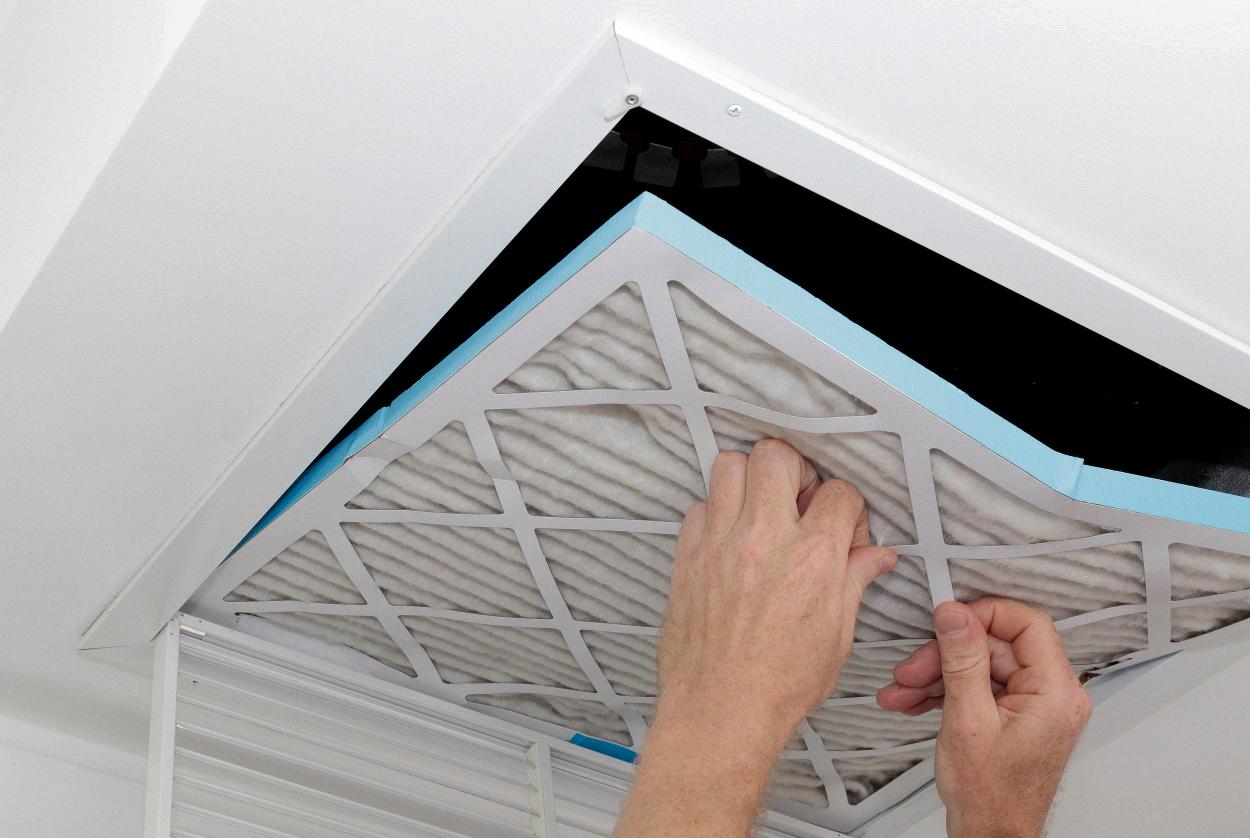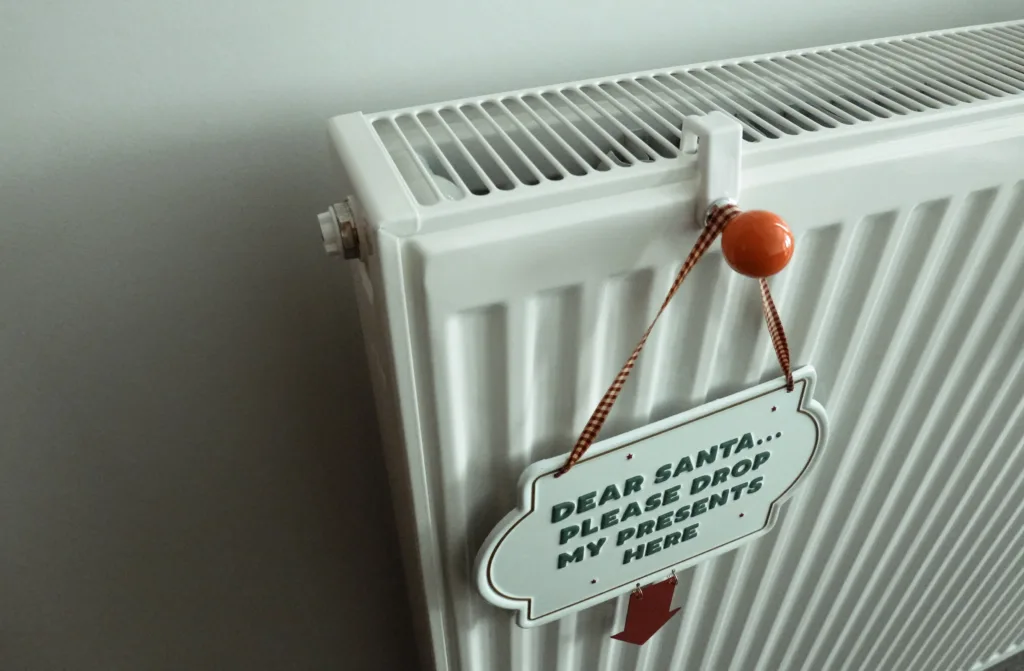As the colder months approach, many of us turn to our trusty heating systems to keep us warm and cozy. However, while heaters proide comfort, they can also cause a variety of health issues, including coughing.
Dry air plus bacteria from your air vents can dry out your throat and nasal passages, leading to a scratchy throat and coughing. This is especially true if your heating system has not been cleaned or maintained properly.
Additionally, heaters can also circulate dust, pollen, mold, and other allergens that have accumulated in your air ducts, triggering allergies and causing coughing. When you turn on your heater for the first time, these indoor allergens may cause sinus congestion, making you feel sick.
Toxic indoor air is also a major threat to respiratory health. Indoor heating systems such as wood stoves, gas water heaters and central heating systems with furnaces and chimneys have the potential to be a source of carbon monoxide poisoning if misused. Carbon monoxide is a colorless, odorless gas that can cause headaches, dizziness, and even death.
So, what can you do to prevent coughing and other health issues caused by heaters?
1. Get your heating system inspected and cleaned regularly by a professional.
2. Change or clean your air filters regularly to remove dust and other allergens.
3. Use a humidifier to add moisture to the air, which can help ease coughing caused by dry air.
4. Open windows and doors periodically to let fresh air in and allow stale air to escape.
5. Install a carbon monoxide detector in your home to alert you of any potential danger.
While heaters provide warmth and comfort during the colder months, they can also cause a variety of health issues, including coughing. By taking the necessary precautions, you can ensure that your heating system is safe and healthy for you and your family.
The Effects of Heating on Coughing
The heater can make you cough because of several reasons. Firstly, the dry air produced by the heater can dry out your throat and nasal passages, leading to a sore throat and coughing. Additionally, bacteria and other contaminants could accumulate in your air vents and be blown into your home when the heater is turned on, aggravating your respiratory system and causing coughing.
Moreover, dust, pollen, mold, and other allergens that have accumulated in your air ducts during spring, summer, and fall could be circulated by your heater, leading to itchy nose and sneezing. This happens because the heater blows warm air that carries these allergens into your home, causing irritation to your respiratory system.
It is important to maintain your heating system regularly to prevent the accumulation of these allergens and contaminants. You can change the air filters regularly, clean the air ducts, and have your heating system inspected and serviced by a professional at leat once a year. By doing so, you can reduce the risk of coughing and other respiratory problems caused by your heater.

The Effects of Turning On the Heater on Health
As the temperature drops, many of us turn on our heaters to stay warm and cozy indoors. However, for some people, turning on the heater may cause a feeling of sickness. This is because when you turn on your heater for the first time after a long period of disuse, it may release dust, pollen, and other indoor allergens into the air.
When these allergens enter your nasal passages, they can cause sinus congestion, coughing, and sneezing. In some cases, these symptoms can be severe enough to make you feel sick. Additionally, if your heater is not properly maintained, it may harbor mold or bacteria, which can worsen your symptoms and lead to respiratory infections.
To avoid getting sick when you turn on your heater, it is essential to keep your heating system well-maintained and clean. You can do this by regularly changing your air filters, cleaning your ducts, and scheduling annual maintenance checks with a professional HVAC technician.
Furthermore, you can reduce indoor allergens by dusting and vacuuming regularly, keeping your home well-ventilated, and using an air purifier. If you are particularly sensitive to indoor allergens, you may also want to cosider using a high-efficiency particulate air (HEPA) filter or wearing a mask when you clean or dust.
Turning on your heater may cause sickness due to the release of dust, pollen, and indoor allergens. By maintaining your heating system and reducing indoor allergens, you can prevent these symptoms and enjoy a warm and healthy home.
The Effects of Heaters on Respiratory Health
Heaters, both portable and fixed, have the potential to caue respiratory problems if not used properly. Indoor heating systems such as wood stoves, gas water heaters, and central heating systems with furnaces and chimneys can produce carbon monoxide, a poisonous gas that can cause headaches, dizziness, weakness, nausea, and even death in high concentrations.
In addition to carbon monoxide, heaters can also produce other harmful emissions such as nitrogen dioxide, sulfur dioxide, and particulate matter. These pollutants can irritate the lungs and cause respiratory symptoms such as coughing, wheezing, and shortness of breath. Children, the elderly, and people with pre-existing respiratory conditions such as asthma or chronic obstructive pulmonary disease (COPD) are particularly vulnerable to the effects of indoor air pollution.
To prevent respiratory problems caused by heaters, it is important to ensure that all heating systems are properly installed, maintained, and ventilated. Portable heaters should be used in well-ventilated areas and never left unattended. It is also important to regularly check carbon monoxide detectors and replace batteries as needed.
Heaters can cause respiratory problems if not used properly. It is important to follow proper safety precautions and take measures to ensure good indoor air quality to protect respiratory health.
The Impact of Heat on Coughing
Heat can certainly irritate a cough, especially if the air is dry and hot. Breathing in hot air can cause the airways to narrow, leading to coughing and shortness of breath. This is especially true for people with pre-existing lung conditions such as asthma or chronic obstructive pulmonary disease (COPD). In addition, when it’s hot in summer, there are often higher levels of pollutants and pollens in the air, which can further irritate the airways and trigger coughing.
If you are experiencing a cough duing hot weather, it’s important to take steps to protect your respiratory health. Here are some tips:
– Stay indoors during the hottest parts of the day, when air pollution levels tend to be highest.
– Use an air conditioner or fan to keep your home cool and comfortable.
– Drink plenty of fluids to stay hydrated and keep your airways moist.
– Avoid smoking or exposure to secondhand smoke, which can further irritate the lungs.
– If you have a pre-existing lung condition, make sure to follow your doctor’s instructions for managing your symptoms during hot weather.
By taking these steps, you can help minimize the impact of hot weather on your respiratory health and reduce your risk of coughing and other respiratory symptoms.
Treating a Heat Cough
A heat cough, also known as a dry cough, can be quite persistent and uncomfortable. It is typically caused by irritation in the throat due to dry air or allergens. Fortunately, there are several ways to alleviate a heat cough:
1. Honey: Honey can be used to soothe a dry cough in both adults and children over the age of one. It can be taken alone or mixed with warm water or tea.
2. Turmeric: Turmeric contains curcumin, a compound that has anti-inflammatory, antiviral, and antibacterial properties. It can be mixed with warm milk or water and consumed to help alleviate a heat cough.
3. Ginger: Ginger is known for its anti-inflammatory and antibacterial properties, making it a great option for treating a dry cough. It can be consumed in tea or added to hot water with honey.
4. Marshmallow root: Marshmallow root can help soothe an irritated throat by forming a protective layer in the throat. It can be consumed in tea or taken as a supplement.
5. Peppermint: Peppermint has a cooling effect and can help alleviate a dry cough by reducing irritation in the throat. It can be consumed in tea or added to hot water with honey.
6. Masala chai tea: Masala chai tea contains a variety of spices, including ginger and cinnamon, which can help alleviate a dry cough. It can be consumed hot or cold.
7. Capsaicin: Capsaicin is a compound found in chili peppers that can help alleviate a dry cough. It works by reducing inflammation and suppressing cough reflexes. It can be consumed in food or taken as a supplement.
In addition to these remedies, it’s important to stay hydrated by drinking plenty of fluids and usig a humidifier to add moisture to the air. If your cough persists for more than a week or is accompanied by other symptoms, it’s important to seek medical attention.

Source: molekule.com
Signs of Sickness Caused by a Heater
Heaters are a common source of warmth during the cold winter months. However, they can also be a source of sickness for some individuals. Here are some signs that your heater might be making you sick:
1. Sore/Dry Throat: If you are experiencing a sore or dry throat, it could be a sign that your heater is making you sick. Heaters can dry out the air in your home, which can irritate your throat.
2. Sneezing or Itchy Nose: If you find yourself sneezing or experiencing an itchy nose, it could be a sign that your heater is circulating dust, pet dander, or other allergens in your home.
3. Coughing: If you are coughing more than usual, it could be a sign that your heater is making you sick. Heaters can circulate dust, mold, and other irritants in your home, which can cause coughing.
4. Watery, Itchy Eyes: If your eyes are watery and itchy, it could be a sign that your heater is making you sick. Heaters can circulate dust and other allergens in your home, which can irritate your eyes.
5. Headaches: If you are experiencing headaches, it could be a sign that your heater is making you sick. Heaters can circulate carbon monoxide or other harmful gases in your home, which can cause headaches.
6. Allergy Flare-Up: If you suffer from allergies, you may experience an increase in symptoms when your heater is running. Heaters can circulate allergens in your home, which can cause an allergy flare-up.
7. General Discomfort Indoors: If you feel uncomfortable indoors, it could be a sign that your heater is making you sick. Heaters can circulate dry air, which can cause discomfort and irritation.
If you are experiencing any of thse symptoms, it could be a sign that your heater is making you sick. It’s important to take steps to improve your indoor air quality, such as cleaning your heater regularly, using an air purifier, and opening windows to let in fresh air. If your symptoms persist, it’s recommended to consult with a medical professional.
Are Heaters a Source of Allergic Reactions?
It is possible to be allergic to the heater. When you turn on your heater after a long period of inactivity, it can circulate dust, mold, and other allergens that have accumulated on its surface. These allergens can then be dispersed throughout your home as warm air flows through your ventilation system.
In addition to triggering allergies, heaters can also exacerbate respiratory conditions such as asthma. This is because the dry air that heaters produce can irritate the airways and cause coughing, wheezing, and shortness of breath.
To minimize your exposure to allergens and other irritants, it is important to maintain your heater properly. This includes cleaning or replacing air filters regularly, having your heater serviced by a professional, and ensuring that your home is well-ventilated.
If you are experiencing symptoms of allergies or asthma, you should consult with a healthcare professional to determine the best course of treatment. This may include over-the-counter or prescription medications, as well as lifestyle changes such as avoiding triggers and improving indoor air quality.
While heaters can provide much-needed warmth durng the colder months, they can also exacerbate allergies and respiratory conditions. By taking steps to maintain your heater and improve indoor air quality, you can minimize your risk of experiencing symptoms and enjoy a comfortable, healthy home environment.
The Effects of Heater Use on Throat Dryness
Heaters can indeed cause dry throat. This is because when we turn on our heaters, they tend to decrease the humidity in the air. As a result, the air we breathe becomes dry, which can lead to a dry throat.
Moreover, we tend to breathe through our mouths inadvertently while sleeping, which can further aggravate the problem. This is because when we breathe through our mouths, the air we inhale bypasses the natural humidifying system of our nose, leading to a dry throat.
It is worth noting that dry throat is not only uncomfortable but can also lead to other health issues such as sore throat, cough, and even respiratory infections. Therefore, it is essential to take measures to prevent dry throat caused by heaters.
One way to prevent dry throat is by using a humidifier. A humidifier adds moisture to the air and helps to maintain the humidity level in the room. This can help to prevent dry throat and other related health issues.
Another way to prevent dry throat is by keeping yourself hydrated. Drinking pleny of water throughout the day can help to keep your throat moist and prevent dryness.
Heaters can indeed cause dry throat due to decreased humidity in the air. To prevent dry throat, it is advisable to use a humidifier and keep yourself hydrated by drinking water regularly.
The Effects of Sleeping Under a Heater
Sleeping uder a heater can make you sick if the heater produces too much carbon monoxide or if it overheats. Carbon monoxide is a dangerous gas that can cause headaches, dizziness, abdominal pain, discomfort, vomiting, nausea, and weakness. Overheating can cause burns, fires, and other injuries.
If you want to use a heater to keep warm while you sleep, there are some safety precautions you should take. First, make sure the heater is in good condition and does not produce too much carbon monoxide. You can do this by checking the manufacturer’s instructions or by having a professional inspect the heater.
Second, make sure the heater is placed in a safe location. Do not place the heater near flammable materials or in a location where it can be knocked over easily. It is also important to keep the heater away from bedding, curtains, and other materials that could catch fire.
Third, make sure the heater has a safety feature that turns it off if it overheats. This will help prevent burns and fires.
It is not recommended to sleep under a heater unless it is specifically designed for that purpose. Instead, use blankets and other bedding to stay warm while you sleep. If you must use a heater, make sure it is turned off and unplugged before you go to sleep.
Sleeping under a heater can make you sick if the heater produces too much carbon monoxide or if it overheats. To stay safe, make sure the heater is in good condition, placed in a safe location, has a safety feature that turns it off if it overheats, and is turned off and unplugged before you go to sleep.

Can Heating Decrease Oxygen Levels?
Heaters, specifically fan and infrared heaters, have been known to case a decrease in oxygen levels in the room where they are used. This is because these heaters work by heating up the air molecules and circulating them throughout the space. As a result, the amount of oxygen in the room decreases, which can lead to a variety of health issues if not addressed properly.
One of the primary concerns with low oxygen levels is the effect it can have on the respiratory system. When there is less oxygen in the air, it can cause difficulty breathing, shortness of breath, and even chest pain. This is particularly true for individuals who suffer from asthma or other respiratory conditions. In addition, low oxygen levels can also cause headaches, dizziness, and fatigue.
Another issue that can arise from using heaters is a decrease in humidity levels. When the air is heated, it becomes drier, which can lead to dry eyes, nasal blockage, and other respiratory issues. To combat this, it is recommended to keep a bucket of water in the corner of the room to help increase humidity levels. Additionally, using a humidifier can also be beneficial in maintaining proper humidity levels.
It is important to note that while heaters can cause a decrease in oxygen and humidity levels, this can be easily remedied by taking proper precautions. Ensuring that the room is well-ventilated and using a humidifier or adding moisture to the air can help to alleviate any negative effects. It is also recommended to limit the amount of time that heaters are used and to use them in moderation to avoid any potential health risks.
The Effects of Heaters on Asthma
Heaters have the potential to trigger asthma symptoms in some people. Un-flued gas heating can release nitrogen dioxide, a gas that can be a trigger for asthma. This type of heating should be avoided if possible, or if it is already installed, it should be regularly maintained to ensure it is functioning correctly and not releasing harmful chemicals.
Fan-forced ducted heating can also be a trigger for asthma as it can collect dust and other particles. If the system is not regularly cleaned, it can circulate these particles around the house, potentially triggering asthma symptoms. It is recommended to have the ducted heating system cleaned at least once a year to prevent this from happening.
In addition to these types of heating, wood heaters and open fireplaces can also be problematic for people with asthma. Smoke and other particles released by these sources can cause irritation to the airways, leading to asthma symptoms.
To reduce the risk of asthma triggers from heaters, it is recommended to choose a heater type that is appropriate for the space and regularly maintained. It is also important to ensure good ventilation in the room were the heater is being used to prevent the build-up of harmful gases and particles. Additionally, using an air purifier can help to remove any particles in the air that may be triggering asthma symptoms.
The Meaning of a Heart Cough
Heart cough, also known as cardiac cough or heart failure cough, is a type of cough that occurs as a result of left heart failure. This condition hapens when the heart is unable to pump enough blood to meet the body’s demands. When the heart is weakened, fluid can build up in the lungs and interfere with breathing. The fluid accumulation in the lungs, called pulmonary edema, can cause wheezing or coughing.
The cough associated with heart failure is often described as dry and hacking, but it can also be wet and produce frothy, pink sputum. This coughing can be worse at night when lying down or during physical activity.
Heart cough is a serious symptom that requires immediate medical attention. If left untreated, it can lead to respiratory failure, which can be life-threatening. Other signs and symptoms of heart failure may include shortness of breath, fatigue, swelling in the legs and ankles, and rapid or irregular heartbeat.
To diagnose heart failure, your doctor may perform a physical exam, order blood tests, and use imaging tests such as chest X-rays or echocardiograms. Treatment for heart failure may include medications to improve heart function, lifestyle changes such as diet and exercise, and in severe cases, surgery or heart transplant.
Heart cough is a type of coughing or wheezing that occurs with left heart failure. It is a symptom that requires immediate medical attention and can be a medical emergency. Treatment for heart failure may include medication, lifestyle changes, or surgery.
The Characteristics of an Asthma Cough
An asthma cough is typically dry and persistent, meaning that it can last for several weeks or even months. It is often accompanied by other asthma symptoms such as wheezing, breathlessness or chest tightness. However, not everyone with asthma coughs. Some people with uncontrolled asthma may have thick clear mucus when they cough. It is worth noting that asthma coughs can be triggered by a range of factors, including exercise, allergens, pollution, and respiratory infections. If you experience a persistent cough, it is important to seek medical attention to determine the underlying cause and receive appropriate treatment.

The Characteristics of an Asthma Cough
An asthma cough is a common symptom of asthma, a chronic respiratory condition that causes inflammation and narrowing of the airways. Unlike coughs caused by seasonal allergies or common colds, asthma coughs produce a distinct whistling or wheezing sound in the chest. This sound is caused by the narrowed airways, which create resistance to the flow of air and cause vibrations in the chest.
In addition to the whistling or wheezing sound, an asthma cough may also produce oher symptoms such as shortness of breath, chest tightness, and difficulty breathing. These symptoms can be triggered by a variety of factors, including allergens, exercise, cold air, and respiratory infections.
It is important to note that not all people with asthma will experience a cough, and some people may have a cough that is not related to their asthma. However, for those who do experience an asthma cough, it can be a persistent and disruptive symptom that can interfere with daily activities and quality of life.
If you or someone you know is experiencing symptoms of asthma, it is important to seek medical attention and receive proper diagnosis and treatment. Asthma can be managed with a variety of medications and lifestyle changes, and proper management can help reduce the frequency and severity of asthma symptoms, including coughing.
Conclusion
It’s important to be aware of the potential respiratory health hazards associated with indoor heating systems. Dry air, allergens, and toxic pollutants can all contribute to symptoms such as coughing, congestion, and shortness of breath. When turning on your heater for the first time, it’s important to ensure that it has been properly maintained and cleaned to minimize the risk of carbon monoxide poisoning. Regularly changing air filters and keeping indoor spaces clean can also help to reduce exposure to allergens and irritants. By taking these precautions, you can enjoy the warmth and comfort of your home wthout compromising your respiratory health.
